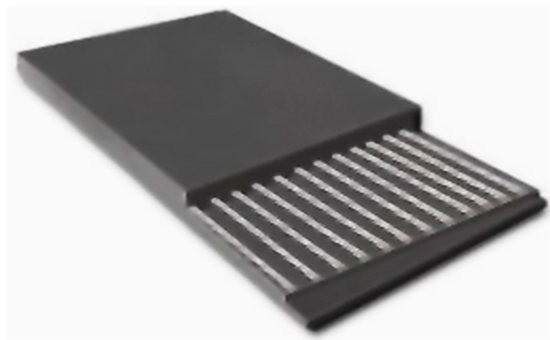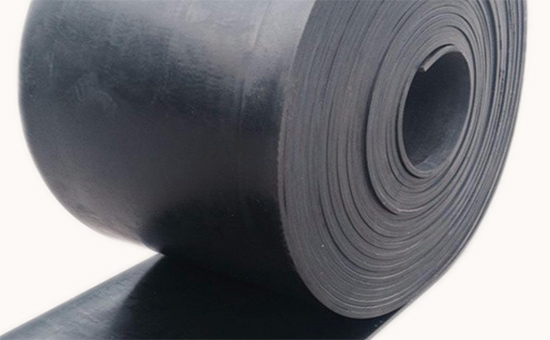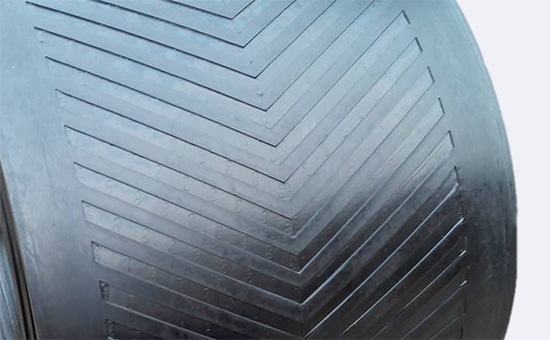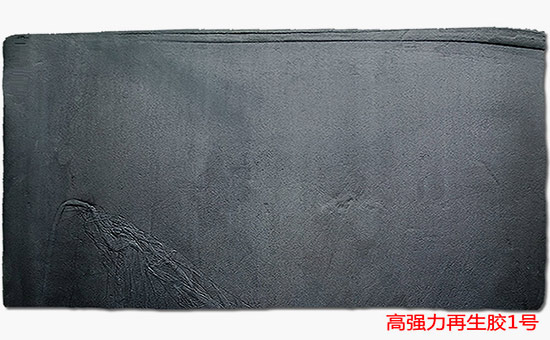Rubber conveyor belts can be divided into ordinary conveyor belts, special performance conveyor belts, flame-retardant conveyor belts, and steel wire rope conveyor belts according to their uses. In ordinary rubber conveyor belts, natural rubber is mostly processed as the main raw material. In actual production, the rubber materials used for various components of ordinary conveyor belts include covering rubber, buffer rubber, cloth layer wiping rubber, cloth layer pasting rubber, etc. The performance requirements of different rubber layers are different; When designing a formula for producing ordinary rubber conveyor belts using natural rubber as the main raw material, it is necessary to master the following skills.
1. Add an appropriate amount of synthetic adhesive and recycled adhesive

The covering rubber for ordinary rubber conveyor belts requires the rubber material to have good tensile strength, wear resistance, aging resistance, and tear resistance. It is mainly composed of natural rubber, with an appropriate amount of styrene butadiene rubber and tire tread recycled rubber added. The rubber content should be controlled at 50% -55%. The buffer rubber for conveyor belts requires the rubber material to have good adhesion, high elasticity, low heat generation, good heat dissipation, and process performance. It can be used in combination with natural rubber/polybutadiene rubber, with an appropriate amount of recycled rubber added, and the rubber content controlled at 50% -55%. Ordinary conveyor belts require good adhesion performance, fatigue resistance, sufficient plasticity, and scorching resistance to the belt core. Natural rubber is the main material and can be used in conjunction with appropriate amounts of styrene butadiene rubber and recycled rubber, with a rubber content controlled at around 50%.

The appropriate use of recycled rubber in various layers of ordinary rubber conveyor belts can not only reduce raw material costs, but also improve the process performance of rubber materials, reduce deformation, and reduce the reversion of natural rubber vulcanization.
2. Reasonably design the formula of natural rubber conveyor belt
(1) Design tips for conveyor belt cover adhesive formula: When using natural rubber/styrene butadiene rubber/recycled rubber to prepare ordinary conveyor belt cover adhesive, the traditional sulfur accelerator combination system is often used, and M and DM are used in combination; When the content of styrene butadiene rubber is high, post effect accelerators such as CZ and NOBS can be used; Use high wear-resistant carbon black and medium to super wear-resistant carbon black for reinforcement; The commonly used varieties of softening plasticizers include engine oil, heavy oil, aromatic oil, pine tar, coumarone resin, and petroleum resin.

(2) Design tips for conveyor belt buffer adhesive formula: When using natural rubber, cis-1,4-polybutadiene rubber, and recycled rubber to prepare ordinary conveyor belt buffer adhesive, using low sulfur coordination can improve the adhesion among the adhesive layer and the cloth layer. The combination of M, DM, and TMTD as accelerators is more common; Using high wear-resistant carbon black and semi reinforced carbon black for reinforcement, with a dosage controlled at around 10 parts; Softening plasticizers should be selected from varieties with good viscosity, such as aromatic oil, pine tar, solid coumarone, etc.
(3) Design tips for the formula of conveyor belt wiping adhesive: When using natural rubber/styrene butadiene rubber/recycled rubber to prepare ordinary conveyor belt wiping adhesive, a sulfur accelerator system is generally used. Accelerator 2SLYY54 can be used in combination with M and DM, or a small amount of TMTD can be added to improve the curing rate, and attention should be paid to preventing the rubber material from burning; It is advisable to choose soft carbon black, such as semi reinforced carbon black, with a dosage of about 10 parts; The amount of coumarone resin and petroleum resin added to the cloth adhesive mixed with styrene butadiene rubber should be appropriately increased, otherwise it will reduce the adhesion of the cloth layer.

When using natural rubber to produce rubber conveyor belts, it is also necessary to strictly control the production process, especially when used in conjunction with styrene butadiene rubber, butadiene rubber, and recycled rubber. The editor will continue to discuss relevant issues with you in the future.
Exclusive original article [commercial authorization] reprint, excerpt and excerpt in any form are prohibited without written authorization. Focus on Hongyun rubber: learn the process formula and raw material technology of producing rubber products from recycled rubber to help you reduce costs and increase profits